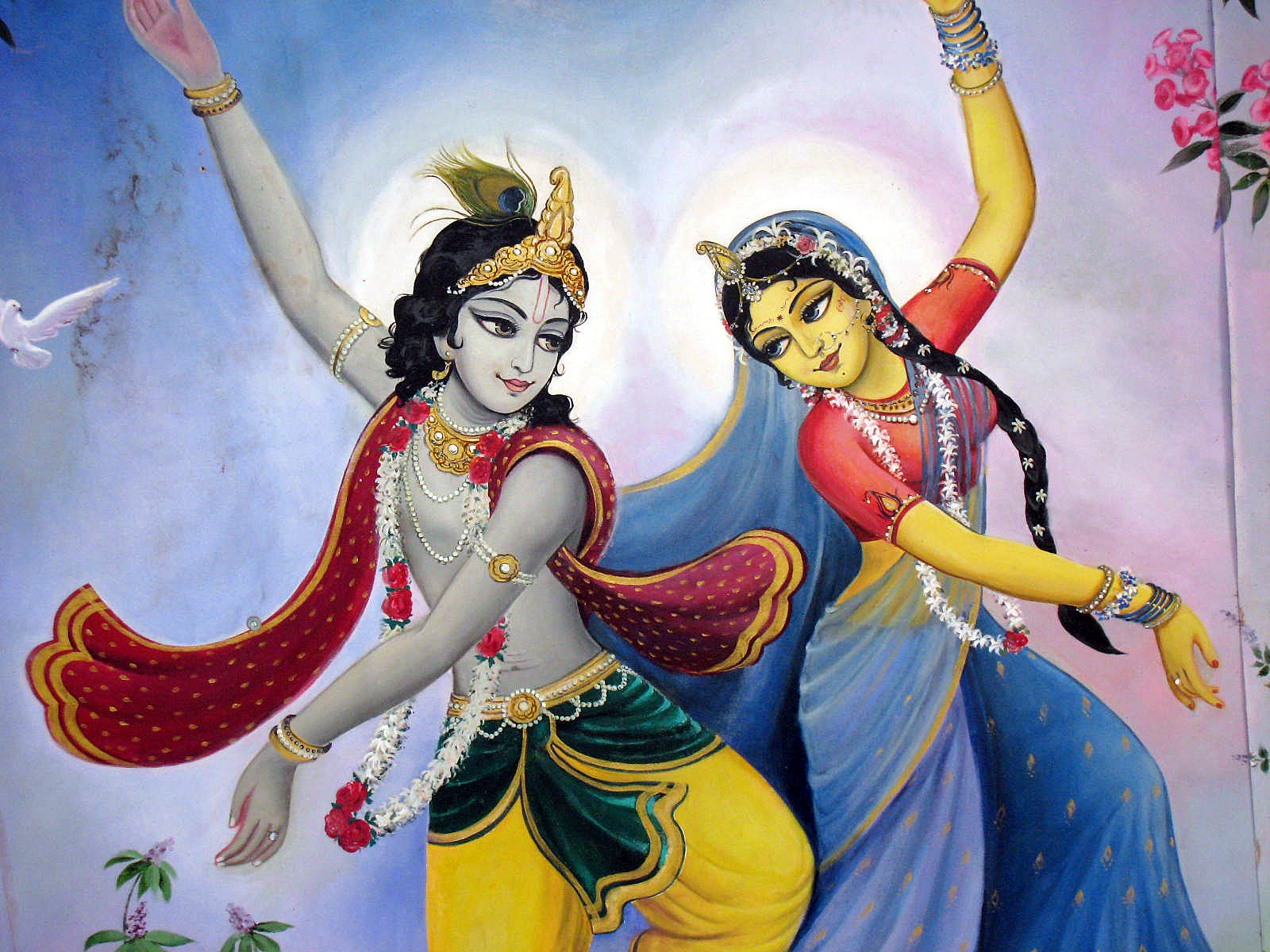The sense that we have ‘self-efficacy’ is an illusion, pure and simple. We might perceive ourselves to possess this thing that we call ‘self-efficacy’ but that’s just a little trick that we are prone to falling for. It’s a little trick that we are very prone to falling for. We fall for it all the time, in fact…
It’s rather odd that modern psychology, following Albert Bandura, sees perceived self-efficacy as such an important foundation of mental health, given that this is nothing more than an ‘optical illusion’, or ‘trick of the light’. The fact that this is the case tells us an awful lot about society as a whole, of which the discipline of psychology is nothing more than a straight expression. Psychology isn’t so much a science as it is a bland offshoot of our overly rational culture, which seeks to ‘safely explain everything away’. The fact that we see perceived self-efficacy as a pillar of mental health shows us that society itself is based on an illusion (or ‘the cherishing of illusions’, as Sogyal Rinpoche says). No matter how well-intentioned or aspirational we are, weare never going to get very far in our understanding of who or what we are based on a made-up thing! How can we say that our perception of being self efficacious as a made-up thing though? SEis pretty much the dominant perception in our lives; the perception of our ‘having to do everything on purpose’ is something we never ever doubt. We’re stuck with it. This perception or belief actually causes us a good deal of stress and anxiety since if everything has to be done on purpose then this raises a distinct and undeniable possibility that we won’t be able to get the thing to happen that we want to happen, or that we will get it to happen but that it will happen in the wrong way. The spectre of ‘right versus wrong’ looms into view, in other words. Self-efficacy can never be separated from the spectre of right versus wrong, obviously.
We see self-efficacy as being the same thing as autonomy, the same thing as ‘being independent’, but this is a misrepresentation of the actual state of affairs, which is a lot more subtle than that. To equate autonomy with our ability to direct things (our ability to control) is a grievous error. It’s a ‘grievous error’ because autonomy is just another word for freedom and freedom has nothing to do with our ability to control, or to direct affairs in accordance with our will. When we are lazy in our thinking it seems to us that ‘autonomy’ and ‘the ability to control’ are one and the same thing but careful examination shows that autonomy really means the ability or capacity not to control. Freedom really means ‘the freedom not to do’ (not ‘the freedom to do’) and this is the point that we find it so hard to understand. Purposeful action always takes place within the Domain of the Known and the Domain of the Known is two things at once – it is both an absolute prison and a total illusion. ‘Not-knowing is freedom. Knowing is prison.’ says Krishnamurti.
‘Freedom’ is a negative quality and not a positive one, in other words. This corresponds to John Keat’s notion of negative capacity, which is the capacity not to have to reach out to try to reach conclusions or solutions all the time. This is a subtle kind of an idea therefore, as we have said. Sometimes it is necessary – or even vital – for us to control the external environment and so the ability to do so is in away an expression of our autonomy. But it is also true that when it seems to us that we absolutely have to control then the environment is controlling us and not vice versa. When all freedom is taken out of the picture then we are being ‘controlled by our need to control’. Following on from this therefore, we can say that control is only an indication of autonomy when we are also free to not control and so this means that not controlling, even when it seems as if we absolutely have to or ought to, is an indication of our autonomy. It is, we might say, the ultimate expression of our autonomy. When our ‘not controlling’ as an expression of freedom, then this truly is autonomy in other words, no matter what it may seem like to someone else.
Talking about the necessity to sometimes have to exert control with regards to our external environment isn’t the main issue at all however – where we really get controlled by our (conditioned) need to control is with regard to the psychological or ‘inner’ world. This is a sphere that is largely invisible to us because we very rarely see this type of control going on. What we’re talking about here is the way in which we automatically control our perceptions of the reality so we can continue to be presented with the picture of the world and ourselves that we are familiar with (and which we implicitly but wrongly understand to be the true picture). If we wanted to know what our unconscious–but–nevertheless–goal-orientated activities are all about, this is it! We don’t ever think of this as being a major form of activity that is constantly going on ‘under the surface’ it is true, but that is precisely because we don’t want to. The whole point is that we don’t ever acknowledge this activity – if we did then the illusion of self-efficacy would vanish immediately, leaving us with a much subtler view of what it means to be a person or what it means to be alive.
When we are talking about the psychological sphere of things (i.e. ‘the inner world’) then we are being controlled by a need to control and there is no doubt about this. We are being controlled [1] by our own need to control and [2] by our equally important need not to have the faintest clue that this is going on. All we know is that when we start to feel bad or strange or uncomfortable in some way then we have to immediately act so as to get rid of this feeling and if we can’t do this – for a sustained length of time – then we experience ourselves as being in a very bad place. It is no exaggeration to say that life then turns into a nightmare, the sort of nightmare we wouldn’t be able to imagine unless it happened to us. We certainly can’t empathize when we see it happening to someone else – we can’t empathize because we can’t understand it. So whenever we are being successful in our attempts to stay on top of our controlling (our controlling of how we are perceiving reality) or whether we are not doing so well at the job makes no difference whatsoever – either way we being controlled by the unconscious or unacknowledged necessity to control. This is the invisible (or covert) controlling that we become so painfully aware of in neurosis.
We are – in short – constantly being acted upon by all sorts of impulses, impulses that trigger us to control in various ways, impulses that cause us to seek certain, specific outcomes. This is ‘the Homeostasis of the Self-Concept’, which is our lord and master. We implicitly see ‘autonomy’ as being when we can control effectively (i.e. when we can maintain homeostasis invisibly and unknowingly) and get things to be the way that the compulsions which are acting upon us want them to be. We see freedom as ‘the ability to successfully act out our desires and thoughts’ in other words but this is fake autonomy (or fake mental health). Autonomy itself – very clearly – is when we don’t act out every impulse, every thought, every mechanical trigger, and ‘acting out’ our thoughts doesn’t just mean ‘acting on them’, it also means believing in them (i.e. believing that what our thoughts tell us what reality absolutely is, which is something that thought absolutely can never do).
What we have said just now is equivalent to stating that ‘autonomy means being aware that being goal-orientated or purposeful (and implicitly believing in the final reality of the self-concept) means not being autonomous’, which is a course the one thing which we never do have awareness of! We’ve got it backwards in everyday life, as we’ve been saying, and so what we take to be autonomy is actually a state of wretched slavery. We’re enslaved by the need to maintain the illusion and because we can never see the illusion to be an illusion we can’t see the slavery for what it is. ‘Mental health’ and ‘autonomy’ are the very same thing – how could there be any mental health without autonomy, after all? Good mental health means seeing that the ‘purposeful self’ (or self-efficacy) is an optical illusion and not a real thing. If we don’t see this then by definition we have no autonomy. If we aren’t aware of this particular ‘trick’ then by definition we must have fallen for it, by definition we must be ‘psychologically unconscious’.
Self-efficacy means that I decide what to do, or what to plan, or what goals to put in place, and then I follow through on this and ‘make it happen’. I am the agent, in other words. I am the causer; I am the decider. This is fine as a convention, but when we start mixing up something that is ‘true as a convention’ (i.e. true if we look at it in a certain way) with something that is absolutely true (a truth that is not our own construct) then we will run into problems. What happens then is that we create the very convincing illusion of ‘the concrete or purposeful self’ and that is an illusion we don’t ever want to get stuck with – we might think that we want to get stuck with it, but we don’t! We might think that it’s a great thing, but it isn’t. The ‘self-efficacious self’ seems like a great thing to start off with but it comes with a whole host of insoluble problems, the underlying one being the ‘disconnection’ from life, which is – whether we like to hear it and not – a necessary precondition for the existence of the self-concept. Actual, honest-to-goodness life causes the self-concept to start dissolving (and therefore becoming visible as a fiction (or convention) and this happens to be the one eventuality that it is most averse to.
Self-efficacy sounds like a great thing and we always take it as being a great thing (even the smartest psychologist seems to be convinced on this point) but despite the fact that it is not actually possible anyway – it would be an utter disaster even if it were possible! It would be an utter disaster because we would then be in the position of being alienated from reality (as we have just said) and no one wants that! We would be alienated from reality precisely because reality is indistinguishable (or inseparable) from freedom and freedom means that there isn’t actually such a thing as a genuinely existing ‘causal agent’ (or ‘purposeful self’). When there is nothing that is not freedom then they can’t be any such thing as ‘a causal agent’ or ‘purposeful self’ because if there was then freedom would be contradicting itself. Freedom is actually free to contradict itself, but only on the level of appearances – freedom can never actually annihilate itself, in other words. Freedom can never be ‘not free’, even it can cleverly (and convincingly) disguise itself as slavery.
What we are saying here is that everything – when it comes down to it – is an exercise in ‘it is as if…’. Everything is ‘an act’ or ‘a pretence,’ in other words, and there is nothing that is not an act or pretence. [Everything is play and there is nothing that is not play.] We would love for there to be such a thing as something that is ‘not an act of pretence’; we insist to the very best of our ability that there is because otherwise we would be face-to-face with ‘the thing we like the least’, which is the revelation of irreducible or inescapable ontological insecurity – ontological insecurity as a reality we cannot ever change. It’s no wonder that we don’t like freedom. It’s no wonder that freedom is ‘Enemy Number One’ as far as we’re concerned! We can’t ever own up to the fact that freedom is our Number One Enemy but once we start looking into it we can see why this has to be the case – freedom means, on the one hand, ‘the freedom to be this person that I think I am’, but also (and more significantly) it means the freedom not to be this person. Freedom is essentially a negative quality, as we have said, and that means that what we are talking about the freedom not to pretend, not to put on this act, not to perform this role. As Robert Wyatt puts it, is ‘the freedom not to be’ (or as we could also say ‘the freedom not to be me’).
So freedom is – of course – simultaneously ‘the freedom to play the game’ and ‘the freedom to see that the game is a game’ and the freedom that allows us to see that the game is a game is the freedom to not have to play the game. If however we are absolutely dead set on playing the game – which means, as we have just said, being dead set on not seeing that the game is a game – then there is no way that freedom cannot be our enemy therefore and this is precisely our situation,absurd as it may seem. Instead of profound or intrinsic freedom we opt for superficial freedom, freedom of the ‘extrinsic type’. Intrinsic freedom still exists, needless to say, it’s just that we have made ourselves blind to it and this blindness is how we are able to ‘enjoy’ the illusion of self-efficacy. Everything is play, everything is Lila, as Alan Watts says. We can either play joyfully, in celebration of the play being play, or we can play that it is not play, and there is nothing joyful about this. It is either conscious play or unconscious play, and unconscious play – although it seems to offer the possibly of happiness or fulfilment, is really nothing else but disguised suffering, and very often it’s not even disguised at all…





